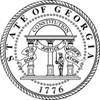
Deal issues veto statements
Gov. Nathan Deal vetoed six bills on Thursday. The following are his veto messages.
SB 38: Authority of the State School Superintendent
Georgia's K-12 education system has a unique governing structure with a statewide-elected state school superintendent and a governor-appointed state Board of Education composed of representatives from each congressional district. Current law provides a number of checks and balances between the superintendent and the board. Those checks and balances were put in place during a time in our state history when the superintendent was making detrimental decisions for students. Prior to these changes, the state board was powerless to intervene. While HB 706, which also passed this session, restores many of these powers to the state school superintendent, to this day, unlike a typical CEO and board relationship, the state Board of Education does not have the power to remove the superintendent in the event of malfeasance or mismanagement. In light of this, I believe it is important to keep some of the current checks and balances. Therefore, I VETO SB 38.
HB 181: Changes to the Special Needs Scholarship
Georgia’s existing Special Needs Scholarship helps all students, regardless of their physical or mental circumstances, achieve academic success. I support the main effort of this bill, which sought to better inform parents and codify the enrollment and payment dates for the scholarship, and much of this may still be accomplished via a state Board of Education rule change. However, an amendment that was added to HB 181 would have significantly reduced the scholarship award special needs students receive. This drastic cut would likely reduce the number of students who would be able to take advantage of this scholarship, as the award amount would no longer offset the cost of tuition at a school that would better serve these students’ needs. Therefore, I VETO HB 181.
HB 456 – Legislative Sunset Review Committee
This bill establishes a new Legislative Sunset Advisory Committee of 14 members that is authorized to review and evaluate every state entity of the executive branch with the purpose of determining which state agencies and entities should be abolished. Implementing HB 456 is estimated to cost between $3 and $7 million. Growing state government with a new committee and statutory authority to review state agencies and the related expenses is not an effective use of state resources. Currently, the General Assembly reviews and evaluates state agencies using the staff in Senate Budget and Evaluation Office, the House Budget and Research Office, and the Senate and House Appropriations committees. Additionally the Department of Audits Performance Audits Division conducts evaluations of state-funded programs and activities to improve state operations. The programs and agencies investigated by the Performance Audit Division are based on the recommendations of legislators and legislative committees. Final performance audits reports and special examinations are published on the Department of Audits website. I have signed SB 33, a bill requiring that all state programs and agencies be reviewed over the next eight to 10 years using Zero Based Budgeting. The ZBB review process is the most cost-effective and efficient way to accomplish the goal of reviewing agency expenditures, evaluating performance and ensuring that we are focused on delivering essential services. Through the budget and legislative process this session alone we have eliminated councils, committees (SB 407) and one state agency (HB 642). The first year of ZBB reviews resulted in elimination of the State Personnel Administration, agency consolidations and realignments, over $9 million in savings, required no additional staff, was a collaborative process with agencies and the House and Senate budget offices and utilized the existing legislative process and House and Senate Appropriations Committees to make the final determinations on the ZBB recommendations. The FY 2013 ZBB Report is available at www.opb.georgia.gov. The intent and desired outcomes of HB 456 are and will be achieved through SB 33 and ZBB review. No additional overhead is needed because legislative authority, committees, and staff to review state agencies and operations are already established in law and the General Assembly did not include funding to implement this legislation, therefore I VETO HB 456.
SB 470- Georgia Patient Self Referral
Senate Bill 470 attempts to address concerns around Georgia’s Patient Self-Referral law, which prohibits health care providers from referring patients for the provision of designated health services to an entity in which the health care provider has an investment interest. The Georgia Patient Self Referral Act of 1993, as well as the Stark Law on the federal level, provides exemptions for rural areas because of the lack of access to adequate healthcare. On close review, this legislation would expand the definition of “rural area” to include “a county in which a military junior college is located, and area which is not an urban area.” This expansion would only apply to one county, Baldwin. The Georgia Patient Self Referral Act of 1993 was passed in response to the potential for abuse that is present when physicians are able to self-refer patients. I am vetoing this legislation because I believe SB 470 provides an unfair advantage to one county over other similarly populated counties around the state. I also find that this legislation would open the door for more counties to seek out the “rural” exemption in years to come. Accordingly, I VETO SB 470.
HB 1051: Public transit authorities; suspension of restrictions on use of annual proceeds from sales and use taxes
House Bill 1051 was the companion to House Bill 1052, which failed to pass. HB 1051 would have become effective only if HB 1052 were enacted. Since the mechanism to make HB 1051 effective does not exist, and at the request of the author, I VETO HB 1051.”
HB 1117 – Bond Debt Elections and Hospital Authority Deposits
The original language of HB 1117 would maintain Fulton County as the only county in the state that is required to hold bond debt elections only on the date of the November general election. An amendment was added to HB 1117 that included an exemption of hospital authorities from OCGA 45-8-12 that requires that any bank or depository holding public funds guarantee the funds with a surety bond, FDIC insurance, or some other form of guarantee or collateral. This exemption would expose public funds to additional investment risk. Hospital Authorities are allowed to participate in the state investment pools which provide the possibility for a higher return on investment but maintain appropriate safeguards against losses. I recommend the author bring back the original legislation for consideration during the next session. This bill puts public funds at additional financial risk, therefore, I VETO HB 1117.
